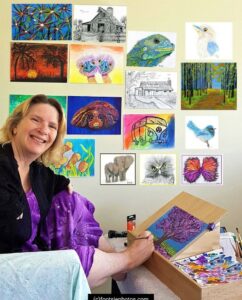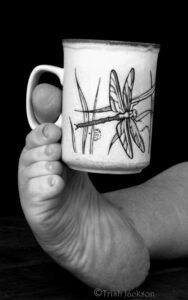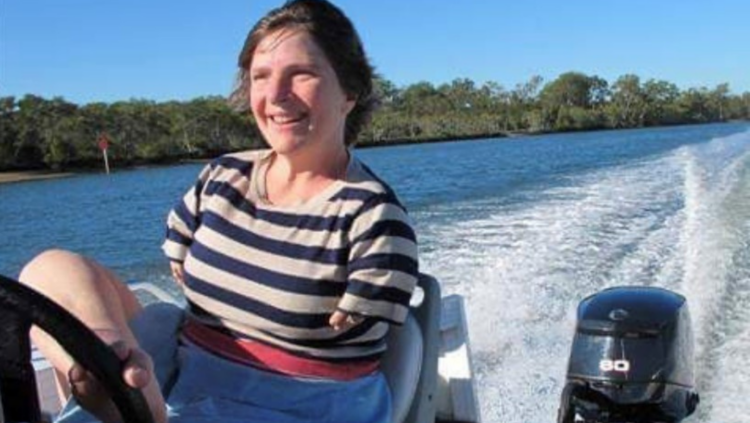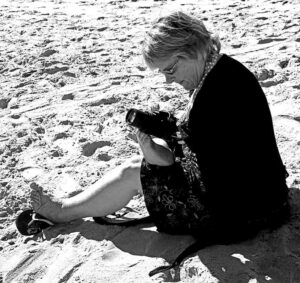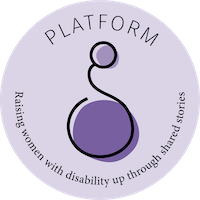Tell us about yourself –
My name is Trish Jackson, I live in Brisbane, Queensland and I am 59 years old.
What has been your journey of disability?
My journey started pre-birth with being a Thalidomide survivor.
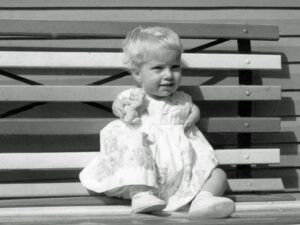
How has this affected you?
For starters, I have no arms, I have three little fingers attached to a little hand that basically comes out of the side of my shoulders. I also have heaps of internal damage to my heart and lungs which has resulted in numerous open-heart operations, and I still have more in the pipeline.
My disability has affected every part of my life. My health, my schooling, getting a job, making friends, my ambitions in life were often squashed. I love to do jigsaws, spend time in my garden, and time with my granddaughter. I used to love cooking, but my body wont let me do a lot these days. I live with a lot of pain as I have to contort my body to be able to do the simplest of tasks.
I like to say I do things the “Trish way”, everything is with my feet. It is the only way I know how, and it has become natural to me.
How did you first begin to create art and find your passion for art?
Lying on a couch in pain, as feet were never meant to be used as hands also, I was in a bad head space. I picked up pen and a piece of paper and started my art journey.
What has finding art meant to you?
I was in a dark place before I found art, it has been wonderful, I just love painting. I have lots to learn and its always good to stretch yourself in all kind of new directions. I believe you should never stop learning. Never in my wildest dreams did I think I would become a member of the worldwide ‘mouth & foot painting association’, dreams do come true.
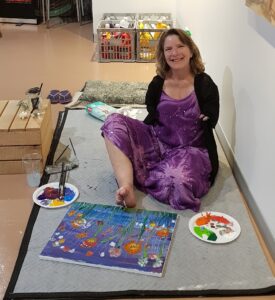
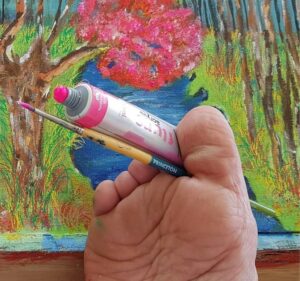
What has been the most challenging part of learning to master painting using your foot/feet?
It has been challenging finding art classes to attend, most classes refused to accept me as I sit on the floor to paint, and they said I would be a trip hazard to other participants.
You are also a photographer, have you had to develop particular adaptations to support your photography?
Yes, because I do everything with my feet. I hold my camera with my right foot hence I must sit to take photos. This gives a very different perspective to my photos.
The use of the drug Thalidomide has been acknowledged as a medical disaster across the world, and in Australia in 2020, survivors living with its effects were acknowledged and a lifetime support package established. What does this acknowledgement and support mean to you?
Growing up my parents did not have any ongoing support for my disability. The Australian Government played a major part in the Thalidomide disaster here as they ignored all warnings as to how dangerous the drug was and continued to allow the sale of the drug knowing that mutilated babies were being born. The support package that took years and years of fulltime fighting the government for recognition and health support (like most other countries put in place for their Thalidomide survivors) has a been a welcoming recognition that they failed to protect Australian women back in the sixties. It took nearly sixty years for the government to right this “HORRIBLE” wrong they created which should’ve & could’ve have been prevented this disaster happening. While we are extremely thankful the government package, it falls short compared to other countries and the process of getting the help is extremely hard to navigate.
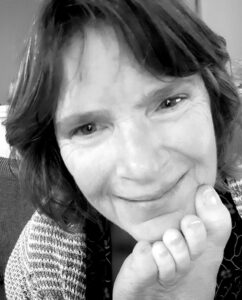
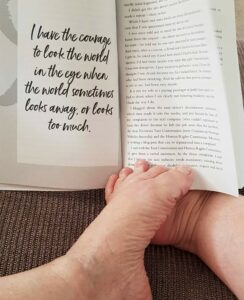
“There is support out there. Don’t suffer in, silence, find your voice.”
You are a public speaker, what impact does your story have on audiences when they meet you and hear your story?
I mainly spoke to school children about my life and never giving up.
I was always surprised by their reactions to my stories. I have over 10 scrapbooks full of Thankyou notes and drawings given to me by the children after they have heard my presentations. I have kept each and every one of them.
Are there things about you that people misunderstand because of your disability?
People see my lack of arms and assume that I have no brain as well.
People think they have the right to stare and say cruel comments as they walk past me.
What is one thing, experience, or person you have had that completely changed your life?
I Have had many wonderful people in my life, and they have all bought different aspects to my journey.
These include my parents, school friends, teachers, my heart surgeons who mended and keep tinkering on my heart that was destroyed by Thalidomide.
I can’t forget my husbands (My first husband passed away) and my beautiful daughter and now my beautiful granddaughter and my support workers have a made a huge difference in my life.
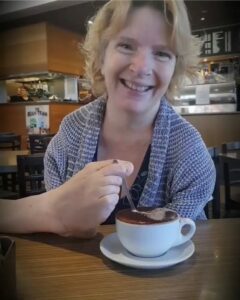
What’s one thing about you that surprises people?
My happy outlook on life.
Knowing what you know now, what advice would you give your 18-year-old self?
Stand up, speak up for yourself because no one else will.
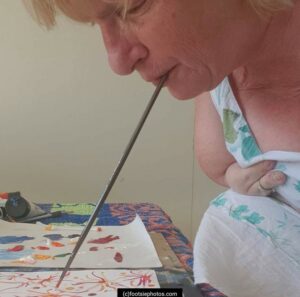
Is there something that you would like people to know about you or about people with disability that they might not know?
We are human, we have feelings, we are not here for your taunts.
Best advice that you would like to share with other women with disabilities?
There is support out there. Don’t suffer in, silence, find your voice.
Do you have a way for people to connect or follow you that you would like me to share?
https://www.facebook.com/limbitlessart https://www.instagram.com/footsiephoto/
